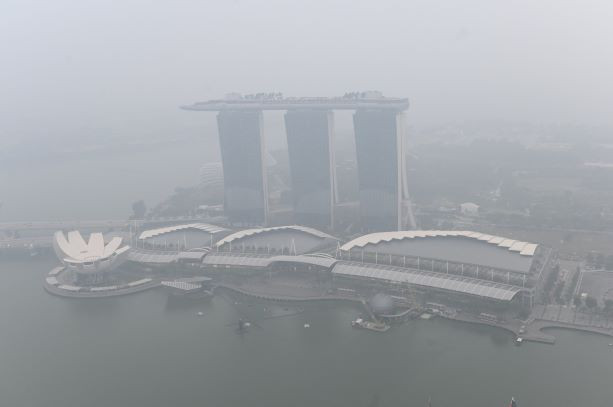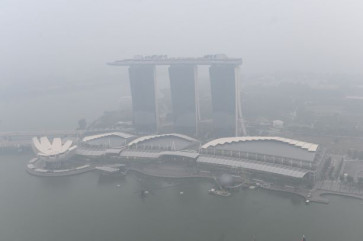Popular Reads
Top Results
Can't find what you're looking for?
View all search resultsPopular Reads
Top Results
Can't find what you're looking for?
View all search resultsAfter 21 years, ASEAN transboundary haze pollution laws still not forthcoming
According to the AATHP, ASEAN member states are under an obligation not to cause harm to the environment of other states, or to areas beyond their national jurisdiction.
Change text size
Gift Premium Articles
to Anyone
D
uring monsoon season, the Southeast Asian mainland and the island of Borneo normally face the prospect of haze originating from the Indonesian archipelago. The specter of haze often hangs over Malaysia and Singapore for weeks and even months like a sword of Damocles.
This unhealthy haze affecting some member countries of ASEAN is primarily made up of the dissipated smoke from fires on Sumatra, resulting from human activities via the cutting down of trees, open burning of peatland and other factors.
When haze in Southeast Asia is caused by human activities, it immediately calls to mind the alarming statement made by James Hansen, a former NASA scientist, who told a United States congressional hearing that he could declare "with 99 percent confidence" that the sharp rise in global temperature was due to human activities.
The ASEAN population could breathe a sigh of relief when its leaders became fully aware of this air hazard and agreed to sign a regional multilateral agreement known as the ASEAN Agreement on Transboundary Pollution (AATHP) on June 10, 2002, in Kuala Lumpur. Malaysia became the first country to ratify the AATHP in December 2002, followed by Singapore in January 2003 and Brunei Darussalam in February 2003. Later in 2003, Myanmar, Vietnam and Thailand ratified the AATHP, making it formal after six ASEAN member states ratified it. Indonesia became the last country to ratify it in 2014.
The Trail Smelter case is often referred to whenever the issue of transboundary pollution under international law crops up in discussion. The case involved transboundary pollution between the federal governments of both Canada and the US, which eventually contributed to establishing the “no harm” principle in the environmental law of transboundary pollution.
This important doctrine of no harm was subsequently adopted by ASEAN when its members decided to ink the AATHP. Its raison d'etre is to create a framework that will allow parties to reduce transboundary pollution and its associated harm.
Article 3 of the AATHP is a clear commitment to the fundamental principle of “no harm”. This cornerstone principle of international environmental law stipulates that states are under an obligation not to cause harm to the environment of other states, or to areas beyond their national jurisdiction.



















